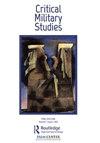策划反对军事化:巴西里约热内卢的马涅尔博物馆的生活政治
Q1 Arts and Humanities
引用次数: 3
摘要
摘要至少从20世纪80年代开始,政策、研究和常识性描述就将里约热内卢贫民窟与帮派暴力、治理真空(国家缺位)和危机联系在一起。在这种话语中,贫民窟被构建成一个例外的空间,其种族化的居民被剥夺了法律地位,并以死亡政治为标志。这些图像也构成了一个恐惧的档案,它深情地支持着这座城市日益增长的军事化。本文转向反霸权的Maré社区博物馆(Museu da Maré),这是一个由里约北区16个贫民窟组成的综合体,以展示它如何打断军事化的情感话语基础。我把重点放在这次中断的两个方面。首先,马雷博物馆拥抱了一种生命政治,它暂停了关于贫民窟的军事化/恋尸知识生产的可能性条件,再现了贫民窟被例外状态和死亡政治过度决定的想法。其次,博物馆在深情地策划社区如何经历恐惧的过程中,打破了恐惧在城市中的传播方式,消除了恐惧如何“粘”在贫民窟及其居民身上,他们始终是潜在的暴力肇事者。除了抵抗项目之外,我认为马雷博物馆预示着未来的政治。本文章由计算机程序翻译,如有差异,请以英文原文为准。
Curating against militarization: the politics of life in Rio de Janeiro’s Museu da Maré
ABSTRACT Since at least the 1980s, policy, research, and common-sense depictions have associated Rio de Janeiro’s favelas with problems of gang violence, governance vacuum (state absence), and crisis. Within this discourse, favelas are constructed as spaces of exception, whose racialized residents are stripped of legal status and marked by a politics of death. Such imageries also constitute an archive of fear that has discursively-affectively upheld the city’s growing militarization. This article turns to the counter-hegemonic community museum of Maré (Museu da Maré), a complex of 16 favelas in Rio’s North Zone, to demonstrate how it interrupts militarization’s affective-discursive underpinnings. I focus on two facets of this interruption. Firstly, the Museu da Maré embraces a politics of life that suspends the conditions of possibility for a militarized/necrophile knowledge production about favelas that reproduces the idea that favelas are over-determined by the state of exception and a politics of death. Secondly, the museum, in affectively curating how the community experiences fear, breaks with how fear circulates in the city, undoing how it ‘sticks’ to favelas and their residents as the always potential perpetrators of violence. Beyond a project of resistance, I argue that the Museu da Maré foregrounds a politics of the future.
求助全文
通过发布文献求助,成功后即可免费获取论文全文。
去求助
来源期刊

Critical Military Studies
Arts and Humanities-History
CiteScore
1.90
自引率
0.00%
发文量
20
期刊介绍:
Critical Military Studies provides a rigorous, innovative platform for interdisciplinary debate on the operation of military power. It encourages the interrogation and destabilization of often taken-for-granted categories related to the military, militarism and militarization. It especially welcomes original thinking on contradictions and tensions central to the ways in which military institutions and military power work, how such tensions are reproduced within different societies and geopolitical arenas, and within and beyond academic discourse. Contributions on experiences of militarization among groups and individuals, and in hitherto underexplored, perhaps even seemingly ‘non-military’ settings are also encouraged. All submitted manuscripts are subject to initial appraisal by the Editor, and, if found suitable for further consideration, to double-blind peer review by independent, anonymous expert referees. The Journal also includes a non-peer reviewed section, Encounters, showcasing multidisciplinary forms of critique such as film and photography, and engaging with policy debates and activism.
 求助内容:
求助内容: 应助结果提醒方式:
应助结果提醒方式:


